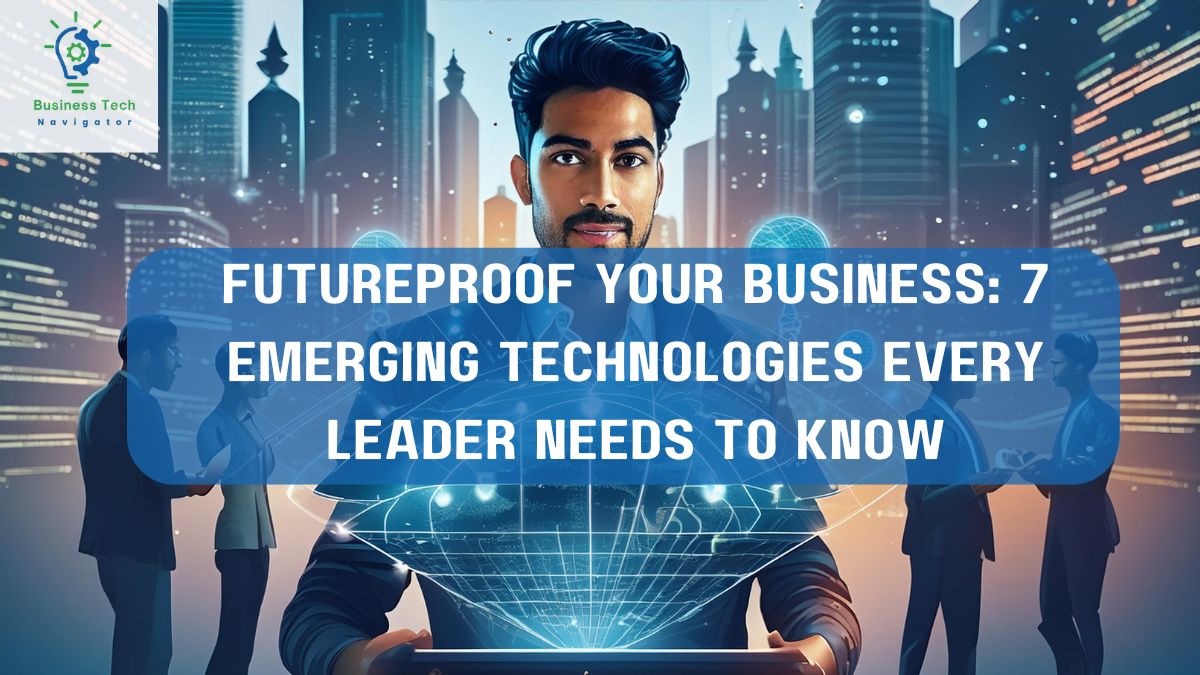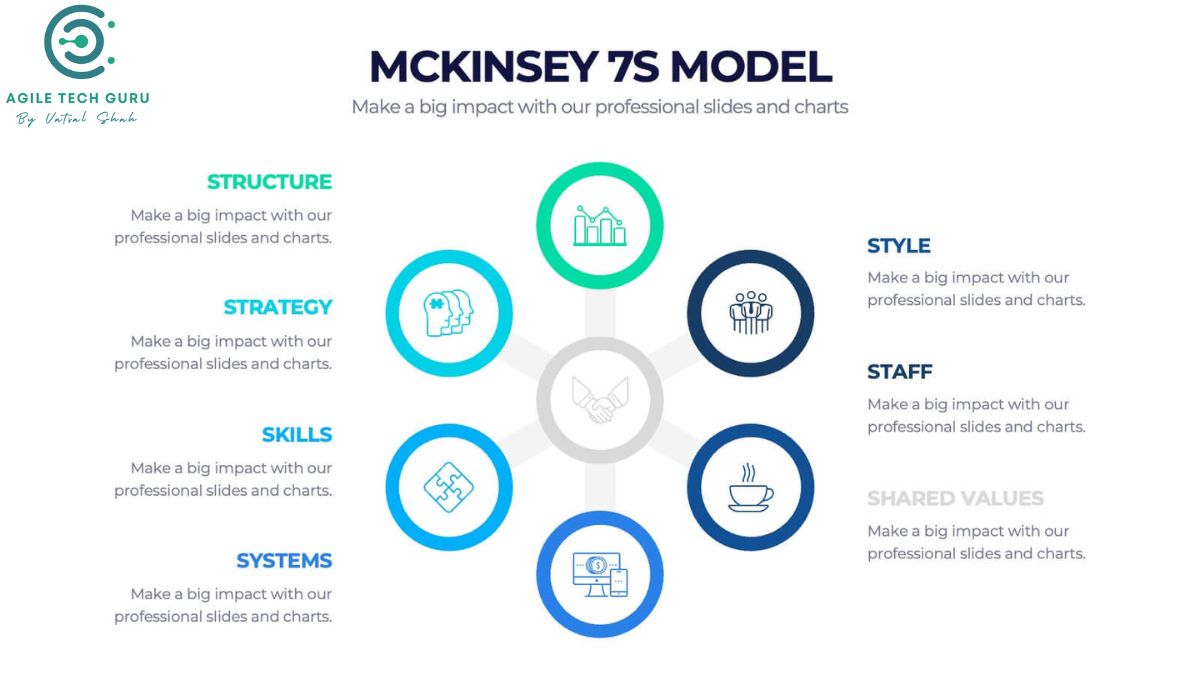Introduction
In today’s fast-paced world, technology is changing rapidly. To stay ahead, business leaders need to know about the latest trends. Here are seven emerging technologies that can futureproof your business.

1. Artificial Intelligence (AI) and Machine Learning (ML)
What is it? AI is a technology that enables machines to mimic human intelligence. ML is a subset of AI that allows machines to learn from data and improve over time.
Applications:
- Predicting customer behavior
- Automating customer service
- Personalized marketing
Benefits:
- Increased efficiency
- Cost savings
- Better decision-making
Case Study: A retail company used AI to predict stock needs, reducing waste and saving costs.


2. Blockchain Technology
What is it? Blockchain is a secure and transparent way to record transactions. It’s best known for its role in cryptocurrencies.
Applications:
- Supply chain management
- Smart contracts
- Secure transactions
Benefits:
- Improved transparency
- Enhanced security
- Better traceability
Case Study: A logistics company used blockchain to track shipments, improving transparency and reducing fraud.




3. Internet of Things (IoT)
What is it? IoT refers to a network of connected devices that communicate with each other.
Applications:
- Smart cities
- Industrial automation
- Connected consumer products
Benefits:
- Real-time data collection
- Improved efficiency
- Enhanced customer experience
Case Study: A manufacturing company used IoT sensors to monitor equipment, reducing downtime and maintenance costs.



4. 5G Technology
What is it? 5G is the next generation of mobile networks, offering faster speeds and lower latency.
Applications:
- Enhanced mobile broadband
- Ultra-reliable low latency communications
- Massive IoT
Benefits:
- Faster internet speeds
- Lower latency
- Greater connectivity
Case Study: A tech company leveraged 5G to improve remote work capabilities and enhance customer interactions.


5. Quantum Computing
What is it? Quantum computing uses quantum bits (qubits) to perform calculations much faster than traditional computers.
Applications:
- Cryptography
- Optimization problems
- Drug discovery
Benefits:
- Exponential processing power
- Solving complex problems
- Faster computations
Case Study: A pharmaceutical company explored quantum computing to speed up drug discovery, reducing time-to-market for new medications.


6. Extended Reality (XR) – AR, VR, and MR
What is it? Extended Reality (XR) encompasses Augmented Reality (AR), Virtual Reality (VR), and Mixed Reality (MR).
Applications:
- Virtual training and education
- Immersive customer experiences
- Enhanced design and prototyping
Benefits:
- Improved learning outcomes
- Engaging customer interactions
- Cost-effective design processes
Case Study: A furniture retailer used AR to allow customers to visualize products in their homes before purchase, increasing sales and customer satisfaction.

7. Data Analytics
What is it? Data Analytics involves analyzing raw data to make informed business decisions.
Applications:
- Customer behavior analysis
- Operational efficiency improvements
- Market trend predictions
Benefits:
- Data-driven decision-making
- Enhanced customer insights
- Identifying new business opportunities
Case Study: An e-commerce company used data analytics to personalize marketing campaigns, resulting in higher conversion rates and customer loyalty.

Conclusion
To stay competitive, it’s crucial to keep up with emerging technologies. AI, blockchain, IoT, 5G, quantum computing, XR, and data analytics can transform your business. Start exploring these technologies today to futureproof your business.




